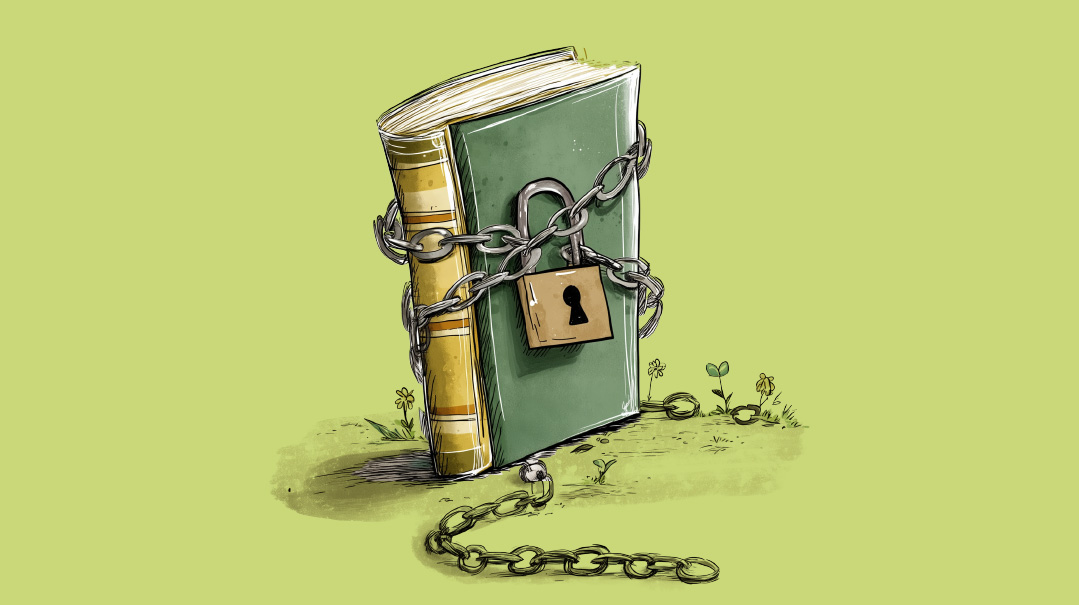Family First Inbox: Issue 933

“If I’m sent a picture with a résumé, I’ll send it back with a polite note that makes my distaste known”

It’s the Teacher’s Responsibility [Mismatch / Issue 932]
As a longtime teacher as well as the wife of a rebbi, this article upset me greatly. And my daughter, who is a first-year, part-time teacher, was extremely bothered as well.
In a classroom, it’s the rebbi or the teacher who sets the tone, nurtures relationships, makes sure children are thriving and not being hurt. The adult in the room holds both the power and has (or should have) the maturity to ensure things go well for every one of their students. My daughter says it’s one of the first things she realized as a new teacher.
Of all the interviewees in the article, only Mrs. Chaya Gibber said that. Everyone else put the onus on either the parent or on the child himself.
When I was in my master’s program for special education, a very wise professor taught us two crucial things:
1) An educator will likely be unable to like every student. Children have different personalities, behaviors, and idiosyncrasies that don’t always match with every teacher. And that’s normal. And then he continued — but if you choose to be in chinuch, you must love every one of your students!
2) When your students come to school in the morning, do a triage. Remember that they’re coming from a night and a home and a trip to school that you know nothing about. And each of those with its myriad details affects a child. So as things happen, keep that in mind and not how you’re feeling. You’re the adult in the room, and you’re there to help each child.
R.S.,
Brooklyn, NY
A Chance to Build Resilience [Mismatch / Issue 932]
I was very interested to read the feature about how to deal with a teacher who is a mismatch for a child. But I was confused when I discovered that one of the top three responses of the many, many parents interviewed for this story was to switch their child out of the school.
On a purely technical level, school acceptance is a very difficult struggle in many communities. How did all these parents manage to get their children accepted into new schools overnight? It was truly baffling to me.
Beyond that, I really wonder about the longterm effects and messaging of this extreme step. Once I confided in an older cousin that my son was having a difficult time with a rebbi. She told me that she also had children who endured tough years in the school system, and in her experience, as long as it doesn’t cross the line to abuse, the experience makes the child stronger and more resilient. They learn that things don’t have to be perfect in order to be okay. That they can survive a critical or demanding teacher. That hard times come, and pass.
As parents, it hurts us so much to see a child enduring a painful and difficult situation. We just want to smooth out every difficulty and keep life sweet and nice for them. But are we doing them a favor in the long term? Life isn’t always smooth. We have to learn how to manage relationships with people who are not perfect — at work, in the community, perhaps even in our own families. We have to learn how to hold on to our self-worth and optimism as we wait for better times to come.
Obviously, a child in a difficult school situation isn’t an exact parallel to an adult with a difficult mother-in-law or boss. The child needs more understanding, more tools, more support. But is it possible that parents, in their determination to spare their children from pain, are actually preventing them from gaining resilience they will need later in life?
Name Withheld
Let’s Reframe It [Know This / Issue 932]
I’m writing in response to the Know This about healthy eating. I read it with great interest, as a wife and mother, but also as a nutritionist, the mother of a child with a medically mandated diet, and a woman with a history of disordered eating.
First, I want to acknowledge what a major achievement it is to completely haul a diet away from highly palatable, ultra-processed foods — especially considering how scientists have spent many hours in labs designing them to encourage overconsumption. And raising children to make healthy choices is not easy! Providing a well-balanced diet takes a lot of time, effort, and money and that’s really special.
However, there are a few points I take issue with, and I’d like to provide an alternative perspective.
1) The interviewee said, “Some people think we go overboard when we don’t give our children any candy, ever, but the terrible effects of high fructose corn syrup (HFCS) and sugar are no secret (not to mention the food coloring and additives).” Can we reframe that to: “Candy in huge amounts, eaten to excess without the counterbalance of healthy fats and proteins is poison”?
Hashem, in His infinite wisdom, made our bodies extremely resilient. Our children can eat small amounts of sugar and be fine. Dietitians advise that as long as over the week their diet balances out, there is no need to be hyper-vigilant over each meal and snack. The 80-20 rule applies here, too — as long as 80 percent of your diet is healthy, your body can handle 20 percent of it being less healthy.
2) The interviewee said, “Sugar is poison.” Sugar is a food that exists. Is it a necessary addition to a daily diet? No. It’s perfectly possible and even healthy to excise sugar from your daily diet. However, using such strong language could be problematic in today’s world, where the rates of eating disorders are rising at alarming rates. Choosing food should never be a moral choice. A child “feeling pity” for his friends eating sugar could, chas v’shalom, develop further. As frum Jews, the only “bad food” is treif food.
So, no, I won’t treat a child as though they have an allergy when it’s the parents’ decision not to expose them a certain type of food that literally everyone else around them is eating. I’ll certainly be respectful of your decision and wouldn’t feed them anything without your permission, but I won’t reorganize an entire environment because of that.
3) Health can be subjective. Some people with colitis can’t eat any fiber. I know someone who has to peel their cucumbers and only eats white processed carbs to avoid terrible symptoms. I have a child with a diagnosed food intolerance who’s also extremely picky. I’d love to feed him healthy homemade food and after his diagnosis, I spent a lot of time and a lot of money on expensive ingredients coming up with healthy alternatives, only for him to reject it all and only agree to eat the highly processed store-bought options. Ideal? No. Is he no longer experiencing terrible gastrointestinal symptoms, is he able to absorb vitamins and minerals, and is his growth back on track? Baruch Hashem, yes.
We can’t control everything. All we can do is our best, and then daven to Hashem.
We can daven that Hashem protect our children and give them good health regardless of the foods they agree to put in their mouths.
Anonymous
Don’t Judge Her [Real Life / Issue 932]
The words in the story, “Abuse isn’t always loud, sometimes it’s the quietest thing in the room,” completely resonated with me.
My mother left my abusive father when I was a youngster, but she herself couldn’t mother me. As a youngster, I tried to share my pain with so many teachers, and their words, “Look how much she did for you, she can’t do better, you need to have kibbud eim,” while true, did nothing to validate me and my pain.
I turned off emotion and became like a brick. I’ve been in trauma therapy for five years and still have been unable to shed tears in front of the person who I’ve come to trust most. I’m unlocking my sense of feeling and the journey is taking me too long; I’m running out of patience.
I feel judged by extended family. “When will she get her life together and get married,” are the unsaid words I hear. Could it be I’m so used to the negative that I hear what isn’t said? If only they reached out in a warm, sincere way on a consistent basis, maybe I wouldn’t hear those messages.
I’d imagine that the writer will agree with me that the most helpful “advice” isn’t rocket science but some plain and simple reaching out in the form of going out for a walk, a cup of coffee, Shabbos/Yom Tov/Chol Hamoed invite (to give the feeling of being included), or any other small gesture. The key word is small gesture.
Now, as an older single with zero family support or encouragement and a society that is inundated with busyness, I feel crushingly alone. Not only no mother, father, or siblings to provide me with a home, but a community that mirrors that lack of compassion and warmth I'm so craving to have.
It pains me to read about this writer’s sense of being judged, as if the situation was her fault. It takes both parties to make things work. Sometimes, the other person is just so unwell, it’s practically impossible to be in a healthy fulfilling relationship that way. Kol hakavod that the writer took the move to leave her abusive relationship.
In my own way, I can relate to “moving” away from the family or friends that hurt me or don’t give me what I need. Of course, I’ll be a mensch and be cordial and act in ways of peace, but relating to the story, I felt validated, and I hope that only more support comes the writer’s way.
Name Withheld
Husbands with Health Issues [Inbox / Issue 932]
I just want to point out, in the discussion about single mothers and their sons, that there is a group of mothers that go unnoticed — the mother whose husband is going through depression or some other mental illness. These husbands are often unavailable for their children. I know because my husband is going through depression, and my sons, who are old enough to go to shul and Avos U’Banim, often are left stranded.
I don’t even know how to solve the issue since my husband’s illness is a secret, understandably. People can’t reach out to help me because they don’t know. We’re new to our current neighborhood, and the rav isn’t easily reachable, and rabbanim out of the neighborhood don’t have solutions for me.
I wish there was a support group for women whose husbands’ have mental health issues. Does one exist I don’t know about?
Anonymous
Not So Easy to End It [Lifetakes / Issue 931]
I’m writing in response to the recent article titled, “The Dependent Relationship.” I think the writer brings up an important point when she writes about how afraid she is of losing the friendship despite her knowledge of how unhealthy a relationship it is. This point is applicable in many unhealthy or even toxic relationships. On the one hand, the healthy person in the relationship knows that this relationship isn’t good for them. On the other hand, they end up staying because they feel the relationship is feeding them something.
It’s also important to realize that while those who are outsiders may read this and think, Why is she staying in this relationship that is so obviously damaging? — when one is actually in it, there’s something so compelling or exciting about being in it. This can serve as a reminder to have empathy rather than judgment when we encounter people struggling to get out of toxic relationships.
Anonymous,
Yerushalayim
Don’t Confuse the Two [Touch Base / Issue 931]
I was so thrilled to see Mrs. Batya Weinberg’s column. It’s been a while since her last one, and my family and I wait eagerly for each new topic. (I’m litvish from Lakewood, and each time there is a Touch Base column, my heimish friend from Boro Park and I spend much time on the phone hashing it out and comparing notes: Her family thought this, my family thinks that; there are always great talking points!)
This topic, shidduchim, was a sensitive one for me, as I have a daughter in shidduchim, one who “skipped,” one who refuses to skip, and a sister in her thirties who gets plenty of judgment for her single status (usually by people who married their first date at age 20.) I so appreciate how Mrs. Weinberg can deliver such concise, razor-sharp, straight hashkafah, backing it all up with sources, and simultaneously have us literally laugh out loud (even my husband!) with pithy, humorous one-liners. A spoonful of sugar helps the medicine go down, and this time was no exception.
One word on “picky.” A tzaddik of a shadchan in Lakewood once told me, when I asked him if we were being picky, “Specific is not picky. Know the difference and don’t mix the two up. Your daughter might be specific in what she needs, but she’s not picky.”
Thanks for a wonderful magazine, and please keep the Touch Base columns coming (and more often!). It’s a breath of fresh air in a stuffy world.
Bracha G.
Mothers Must Take a Stand [Touch Base / Issue 931]
I’m so happy to see shidduch pictures being discussed again. As the mother of three boys, if I’m sent a picture with a résumé, I’ll send it back with a polite note that makes my distaste known. My son once got nervous that I was antagonizing the shadchanim. He was a great boy (still is, baruch Hashem married to the greatest girl) and obviously his shidduchim weren’t affected in the least. I just felt that when my girls are in shidduchim, I’m at a disadvantage and although I won’t compromise their self-respect by sending a picture, I also can’t take a stand. But with my boys I can, and so I do.
Unless we do take a stand, the silent majority of mothers and bochurim risk being drowned out.
Zeesy F.
A Dating Coach’s Perspective [Touch Base / Issue 931]
I really enjoyed Touch Base. The advice was well-thought-out and was written with a touch of humor, which I always appreciate.
I’d like to share my perspective on two things that she wrote in the Male Order section.
First, Mrs. Weinberg said, “There are too many factors that go into why people make decisions and land where they do.” I wish that were truly the case. Too often, it seems like singles are not making deliberate, thoughtful choices about whether to be a learner or an earner. Instead of following what feels authentic to them, many are simply conforming to an unspoken rule: In order to get a good shidduch, a boy must be in yeshivah, and a girl must act like that’s exactly what she wants. This isn’t about the learning versus working debate — it’s about the need for people to make choices that genuinely align with who they are.
Second, “A more natural male/female balance is when he’s somewhat ahead of her on the religious curve, not vice versa.” I see it differently. Women set the tone in the home, and, in general, they possess a deeper innate spirituality. When a woman is less religious, there’s a real risk that she may pull her husband down to her level rather than him elevating her. But when a woman taps into her binah yeseirah and knows how to encourage and inspire her husband without pressuring, forcing, or belittling him, she can uplift their entire home in truly remarkable ways.
P.S. I love the word menschette.
Miriam Zeitlin
Dating coach and kallah teacher
(Originally featured in Family First, Issue 933)
Oops! We could not locate your form.







